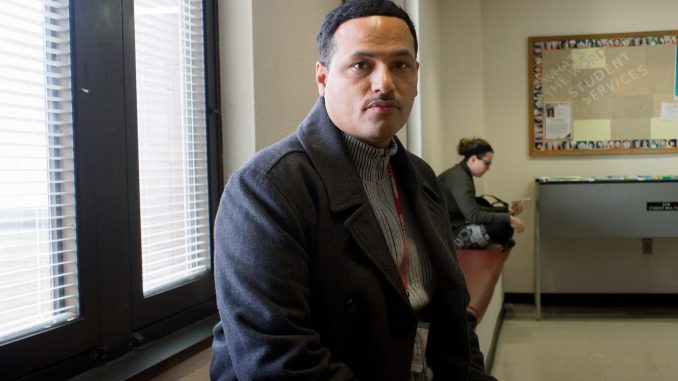
Luis Colon spent his early elementary years in special education classes—but by eighth grade, he was an honor roll student.
That was where it ended. Colon dropped out of school at the age of 13 when he ran away from home. It took him more than 30 years to return to his education in 2008, when he got his high school equivalency certificate after passing General Educational Development classes.
Colon, 47, is now in his last semester at Temple before he receives a master’s degree in social work.
Melvin Edwards never finished ninth grade. When his mother and father fell sick at the same time, Edwards and his older brother dropped out of school to begin work and support their family.
Edwards’ older brother later joined the Navy, his younger sister finished high school and then attended college and became a certified public accountant, but Edwards said he never returned to school.
Although neither Colon nor Edwards grew up in Philadelphia, where they now live, their stories are not a rarity. More than half of the adults older than 25 in North Philadelphia have a high school diploma or less, according to the American Community Survey.
Now at 45, Edwards is registered to take the first two of four GED tests this coming weekend and the last two next weekend.
“My children are 9 [years old]. … I don’t want [them] growing up to be adults that don’t know that their dad at least tried to show them how important education is,” Edwards said.
The Center for Social Policy and Community Development at Temple participates in a larger program in Philadelphia called myPLACE, which was set up by the Mayor’s Commission on Literacy in 2014. The commission works with more than 80 programs to provide adult literacy education.
CSPCD offers adult literacy classes and GED training courses through a program called Workforce Education and Lifelong Learning.
The Center for Literacy, a nonprofit organization that provides adult literacy classes, reports 550,000 adults in Philadelphia struggle to fill out a basic job application because of their low literacy. From 2009-13, however, CFL only managed to reach 10,321 people, about 1.9 percent of the total estimated number of people.
“When I look around and see all these schools closing, it’s creating a vacuum that’s holding kids back from their right to an education,” Colon said. “As someone who is going to be a social worker, I’m pushing for things like education and funding.”
Funding for schools and literacy programs in Philadelphia have been declining, a consequence of which was the closure of 23 public schools in 2013. The Center for Literacy, where Colon and Edwards went to get their GEDS, had 38.4 percent less revenue in 2013 than in 2010.
“Without the finances, teachers don’t get paid, and the students don’t learn,” Edwards said. There were four people in the classes when he started, but he said now, it’s down to just him.
Edwards said most students in the program enter at a sixth-grade reading level, however he saw one man come to classes from September to December 2015, not even knowing how to read.
“He didn’t finish, but he left knowing more now than he ever did his whole life,” he said.
Julie Christie can be reached at julie.christie@temple.edu or on Twitter @ChristieJules.
CORRECTION: A version of this article that ran in print Feb. 23 misstated that Colon had earned his General Educational Diploma. GED stands for General Educational Development tests. Once Colon passed his, he earned a high school equivalency certificate.


Be the first to comment